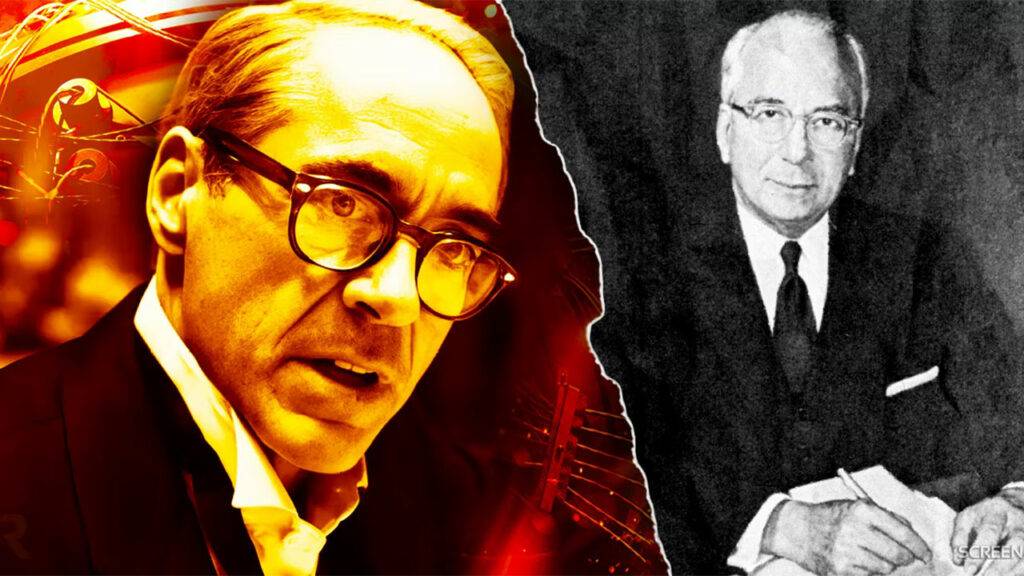The 2023 blockbuster “Oppenheimer,” directed by Christopher Nolan, not only delves into the scientific and personal life of J. Robert Oppenheimer but also sheds light on his tumultuous relationship with Lewis Strauss.
This article explores the real-life events that inspired the cinematic portrayal of their feud and the lasting impact it had on both individuals.

What Happened to Lewis Strauss?
The rivalry between Lewis Strauss and J. Robert Oppenheimer began in 1947 when Oppenheimer, hailed as a national hero for his role in creating the atomic bomb, was offered the directorship of the Institute for Advanced Study at Princeton.
Despite being a trustee of the institute, Strauss lost the position to Oppenheimer, sparking immediate animosity. Their differing political views, with Strauss being a Republican and Oppenheimer leaning liberal with Communist ties, further fueled the tension.
Why Did Lewis Strauss Hate Oppenheimer?
Beyond the professional conflicts, Lewis Strauss harbored personal reasons for disliking J. Robert Oppenheimer. Strauss, proud of his Jewish heritage and his ability to overcome anti-Semitism in his career, criticized Oppenheimer for not being more public about his Jewish background. Additionally, Strauss disapproved of Oppenheimer’s infidelity, further straining their relationship.
Strauss & Oppenheimer’s Feud Intensifies in 1947
The feud escalated in 1947 when both men served on the General Advisory Committee (GAC) of senior atomic scientists. A disagreement over the safety of transporting radioisotopes for medical purposes led to a lasting grudge.
Oppenheimer, as the GAC chair, overruled Strauss, deepening the rift between the two. The GAC’s decision humiliated Strauss, setting the stage for further clashes.
Oppenheimer’s Humiliation of Strauss in 1949
The tipping point occurred in 1949 when Strauss orchestrated a public hearing on the radioisotope issue. Oppenheimer, eloquently expressing the insignificance of isotopes compared to electronic devices, publicly embarrassed Strauss.
This event, highlighted in the film “Oppenheimer,” played a crucial role in shaping the feud’s trajectory. Strauss, unable to forgive Oppenheimer, sought revenge, leading to severe consequences.
“My own rating of the importance of isotopes in this broad sense is that they are far less important than electronic devices but far more important than, let us say, vitamins, somewhere in between.” – J. Robert Oppenheimer
The Fallout and Legacy
The consequences of the Strauss-Oppenheimer feud extended beyond their professional lives. Strauss’s controversial denial of Oppenheimer’s security clearance haunted him, leading to the failure of his nomination for U.S. Secretary of Commerce.
Despite retiring to his farm in Virginia, Strauss’s tainted legacy and rejected nomination continued to haunt him until he died in 1974. Oppenheimer, on the other hand, passed away seven years earlier in 1967.
Conclusion
The real-life feud between Lewis Strauss and J. Robert Oppenheimer, portrayed in Christopher Nolan’s “Oppenheimer,” had profound consequences for both individuals. The clash of political ideologies, professional disagreements, and personal vendettas left an indelible mark on their legacies.
As we reflect on this historical rivalry, it serves as a reminder of the complex intersections between personal beliefs, professional ambitions, and the enduring impact of interpersonal conflicts.


